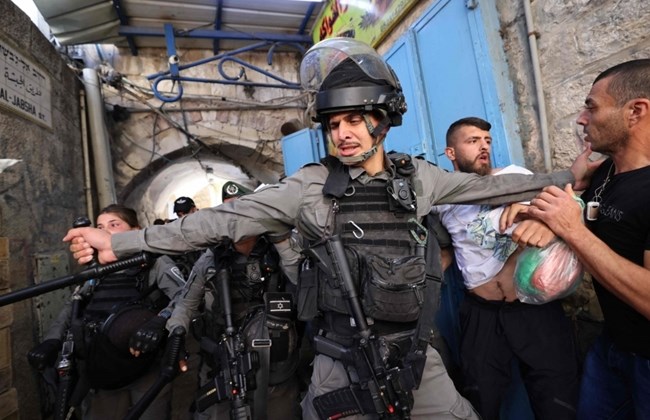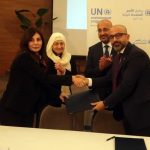

Apartheid In Palestine
The Palestinians’ struggle against systematic Israeli oppression is once again drawing the global attention following the brutal forced displacement in the neighborhood of Sheikh Jarrah. These evictions were what triggered the latest round of hostilities and mass deaths of Palestinians who are fighting for their basic rights and dignity, and resolutely defending their lands and right to exist. The younger generations of Arabs may not have witnessed the “Nakba” in 1948, but today we are living a new version of the “Catastrophe” to reaffirm that the Palestinian nation has been living in an “ongoing Nakba” since 1948. Human Rights Watch issued on April 2021 “A Threshold Crossed: Israeli Authorities and the Crimes of Apartheid and Persecution,” an important report that is considered a breakthrough. The report highlights the deprivations, separations and violence by Israeli authorities against Palestinians that are categorized as crimes against humanity: apartheid and persecution. Such discrimination and repression against Palestinians have been systematically enforced by Israeli legislations for years within long-term strategies and policies. The report states that the term “apartheid” is being increasingly used in a descriptive or comparative manner between Israel and Palestine, but rarely used from a legal perspective based on the international crimes of apartheid or persecution.
Globalizing Racial Segregation
The term “apartheid” originated from South Africa – “apartness” in the language of Afrikaans – as it was a legislation that enforced policies of racial segregation against nonwhite South Africans that constituted the majority of the population from 1948 until 1991. This term is no longer exclusive to South Africa; it is defined by the “International Convention on the Suppression and Punishment of the Crime of Apartheid” and “Rome Statute of the International Criminal Court” as a crime against humanity. The Apartheid convention states that “the crime of apartheid applies to the inhuman acts committed for the purpose of establishing and maintaining domination by one racial group of persons over any other racial group of persons and systematically oppressing them.” Article 2 in the convention lists the inhumane acts that are all applicable on Israel. The Rome Statute also adopts a similar definition.


Free Vocational Training Courses For Youth Copy

Free Vocational Training Courses For Youth

Mrs. Bahia Hariri Participated In The Seminar “Greening Education In Lebanon”

MoU Between Hariri Foundation And UNEP… In Saida Environmental Forum
